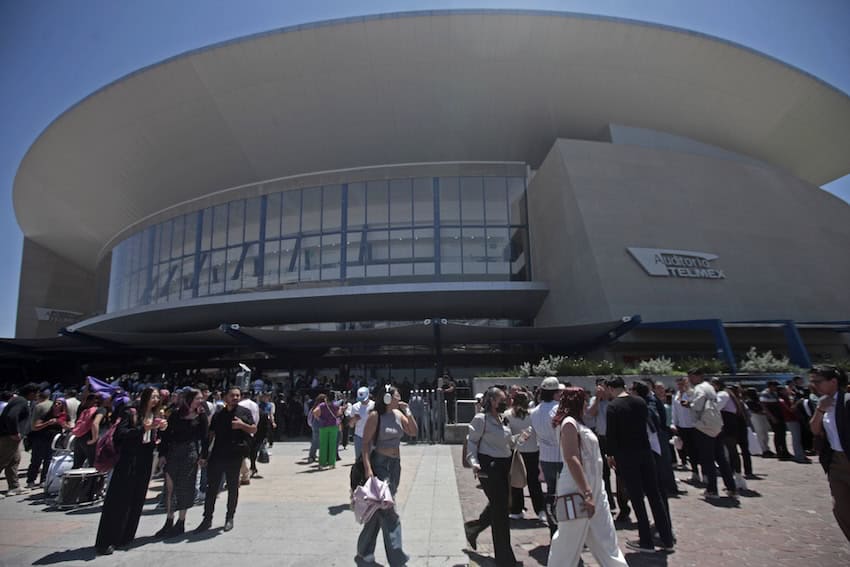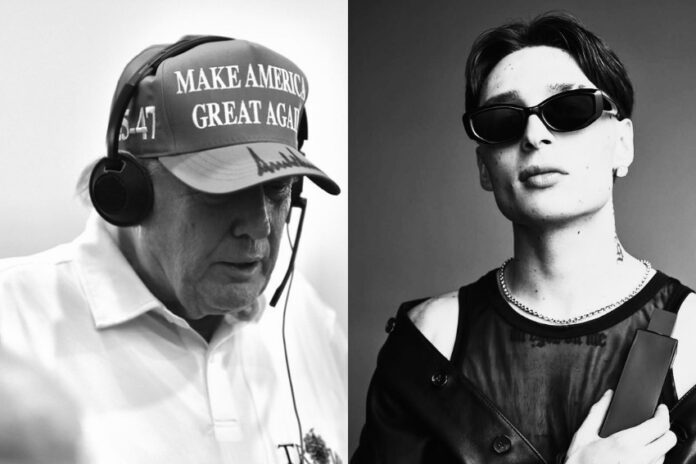Mexican “narcocorrido” singers are at risk of losing their entry visas to perform in the United States because their songs promote the activities of organized crime groups, according to U.S. officials.
Last week, members of the group Los Alegres del Barranco had their U.S. visas revoked after the band played their hit song “El del Palenque,” which pays homage to the notorious drug lord “El Mencho” and the Jalisco New Generation Cartel (CJNG) that he allegedly leads. Photographs of El Mencho were also displayed during their Guadalajara concert on March 29.

The group is also under investigation by the Attorney General’s Office of the state of Jalisco, where the concert took place.
A corrido is a traditional Mexican narrative ballad often depicting real people or events. In the case of “narcocorridos,” the real people are alleged organized crime figures.
The lyrics from certain narcocorridos can be specific enough that they have been used as intelligence by federal agencies to capture criminals. This may have been the case in the September 2024 arrest of Mario Alexander “N,” known as El Piyi, who was signaled out in the song el “Corrido del Piyi” by Larry Hernández and Los Caimanes de Sinaloa.
The Trump administration declared organized crime groups as terrorists in January. Therefore, all individuals who promote or support the activities of terrorist or criminal groups, such as cartels, are candidates for visa revocation, sources within President Trump’s government told the Mexican news outlet Milenio.
“I’m pleased to announce that the State Department has revoked the band members’ work and tourism visas,” wrote Deputy Secretary Christopher Landau on X after news broke that Los Alegres del Barranco lost their U.S. visas days before scheduled performances in Oklahoma and Texas. “In the Trump Administration, we take seriously our responsibility over foreigners’ access to our country. The last thing we need is a welcome mat for people who extol criminals and terrorists.”
The Trump administration has revoked over 800 visas in the last two and a half months, primarily from students who have voiced support for Palestine, foreigners from specific countries deemed noncompliant with the Department of State and promoters of drug trafficking violence, Milenio reported. Thousands more cases are currently under review.
I’m a firm believer in freedom of expression, but that doesn’t mean that expression should be free of consequences. A Mexican band, “Los Alegres del Barranco,” portrayed images glorifying drug kingpin “El Mencho” — head of the grotesquely violent CJNG cartel — at a recent concert… pic.twitter.com/neSIib7EC4
— Deputy Secretary Christopher Landau (@DeputySecState) April 2, 2025
“I don’t know when we’ve gotten it in our head that a visa is some sort of birthright. It is not,” U.S. Secretary of State Marco Rubio said in an interview on March 19. “It is a visitor into our country, and if you violate the terms of your visitation, you are going to leave.”
Previous U.S. governments have used the Patriot Act to revoke the visas of people whose actions they viewed as a threat to national security. However, the media has questioned the credibility of some of the Trump administration’s recent visa revocations.
Critics query whether some recent visa decisions have been at odds with the rights set out in the First Amendment and have accused the Trump administration of stifling free speech.
“I’m a firm believer in freedom of expression, but that doesn’t mean that expression should be free of consequences,” Landau wrote on X.
With reports from Milenio, El Financiero, InfoBae and CNN
